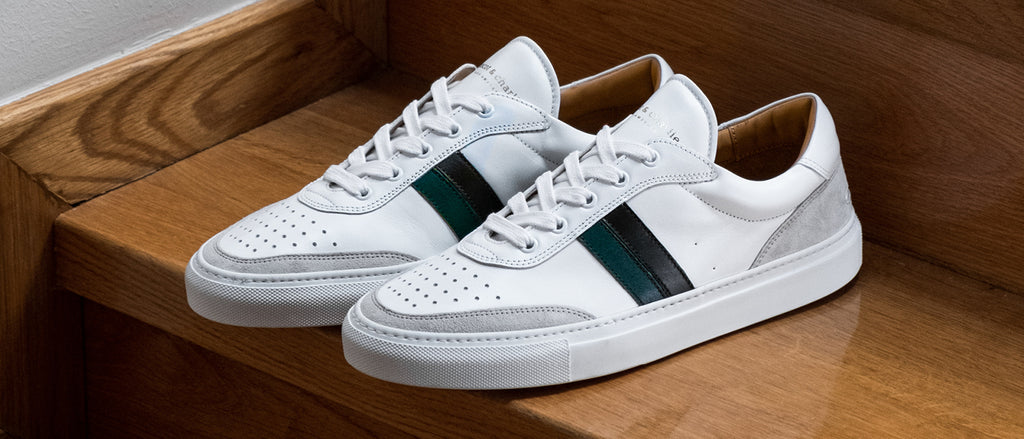The Search For The Perfect Sneaker | Ascot X Charlie
Growing up in the 90s, sneakers were relatively simple. I wore New Balances, Dad wore Reeboks, and the cool kid down the street had a pair of Jordans that I sadly could never quite pull off. Sneakers lived outside, in the gym, or on the treadmill that often sat unused in the guest room.
My, how the world has changed. Today, sneakers seem to be the go-to for nearly every occasion. Casual or formal, work or play, sneakers are not only worn—but collected—and often cleaned with a toothbrush.
And over the last decade, one style has come to reign supreme. The White Sneaker. And it is with good reason. The white sneaker can be worn with anything and to anything these days. It is hands down the most versatile piece of footwear in the modern wardrobe.
There must be 50 brands pushing a minimalist white sneaker, and I have worn about 20. More often than not, I've run into the Goldilocks complex. If I loved the design, they were not comfortable. If they fit great, they tended to be a bit plain. I was searching for the perfect balance of comfort and style, then I found Ascot and Charlie.

To put it simply, these are the best sneakers I have ever worn. The story, materials, and construction are all things I easily fall for. Designed in France, each pair is hand-made in Italy by craftsmen with a generational understanding of how to make exceptional shoes. The designs are minimalist, but far from boring, leading to an elegant shoe that you can wear seamlessly from setting to setting.
Maybe it's because I'm 40 and still recovering from a couple of foot operations, but comfort is king for me, and these are hands down the most comfortable sneakers I've worn. Chalk it up to a pillow-like insole, a cushioned heel (I'm not sure why all brands do not do this), and a width that is generous enough for a wide foot without looking like a clog.
Combine amazing design with unparalleled comfort and add in the fun of being one of the few people in the country that will own these shoes. Prepare yourself for comfort and compliments.









